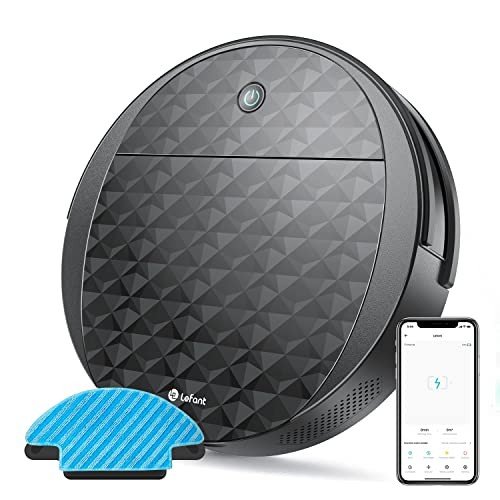7 Little Changes That'll Make A Huge Difference In Your Self Cleaning Vacuum
The Rise of Self-Cleaning Vacuums: Revolutionizing Household Maintenance
In an age where benefit and effectiveness reign supreme, family devices have actually evolved to meet the demands of busy lifestyles. One of the most current developments in the world of home cleaning is the self-cleaning vacuum. These advanced devices are created not only to clean floorings but also to preserve themselves with minimal human intervention. This article explores the workings, advantages, possible downsides, and future of self-cleaning vacuums.
Understanding Self-Cleaning Vacuums
Self-cleaning vacuums represent a significant leap from conventional vacuum. They are geared up with smart innovations that allow them to perform upkeep jobs immediately. This includes jobs such as clearing the dustbin, cleaning the brush rolls, and even charging themselves. These functions are created to minimize the time users invest on upkeep, permitting a more seamless cleaning experience.
Secret Features of Self-Cleaning Vacuums
Function
Description
Self-Emptying Dustbin
Immediately gets rid of collected dirt and particles into a larger bin.
Brush Roll Cleaning
Uses brushes that remove twisted hair and particles to optimize efficiency.
Smart Navigation
Makes use of sensing units and cams for efficient cleaning paths and obstacle avoidance.
App Integration
Enables users to control the vacuum remotely and receive maintenance notices.
Self-Charging
Go back to a docking station to charge when the battery is low.
The Advantages of Self-Cleaning Vacuums
The advantages of including a self-cleaning vacuum into a household cleaning routine are various:
Convenience: Self-cleaning vacuums substantially reduce the manual labor associated with traditional vacuuming. Users no longer require to stop to empty dustbins after every cleaning session.
Time-Saving: By automating cleaning and maintenance tasks, users can designate their time to other essential activities.
Consistency in Cleaning: With sophisticated navigation innovations, self-cleaning vacuums can maintain a regular cleaning schedule, ensuring floorings are consistently tidy.
Enhanced Indoor Air Quality: Many self-cleaning vacuums featured innovative filtering systems that trap allergens and contaminants, adding to better indoor air quality.
Low Maintenance: These vacuums require less regular attention regarding maintenance, as a number of their maintenance jobs occur immediately.
Preparing the Pros and Cons
Pros
Cons
Convenience and ease of usage
Higher initial expense
Constant cleaning results
May need software updates
Advanced purification choices
Reliance on technology
Less manual maintenance
Limited to home cleaning tasks
Potential Drawbacks of Self-Cleaning Vacuums
Regardless of their advantages, self-cleaning vacuums are not without their difficulties:
Cost: The preliminary investment for a self-cleaning vacuum can be substantially higher than conventional designs.
Dependability: Like any smart technology, these vacuums depend on software application updates and battery effectiveness. Users may come across issues if the vacuum breakdowns.
Restricted Cleaning Capacity: While self-cleaning vacuums excel on difficult floors and low-pile carpets, they may have a hard time on thicker carpets or rugs.
Complex Repairs: Issues developing from advanced innovation might cause intricate repairs and even require professional support.
Picking the Right Self-Cleaning Vacuum
When thinking about a self-cleaning vacuum, it is essential to examine various features and performances to identify the very best suitable for your family needs. Here are some factors to think about:
Floor Types: Identify the types of floorings in your house. Some vacuums carry out much better on carpets, while others are designed for tough floorings.
Dustbin Capacity: Check the capability of the self-emptying dustbin to ensure it meets your cleaning frequency and volume.
Battery Life: Consider the length of time the vacuum can operate before requiring to charge.
Smart Features: Look for vacuums with app integration that enables remote control and personalization.
Upkeep Requirements: Assess how frequently you will require to change filters, clean the brushes manually, and perform other upkeep jobs.
Regularly Asked Questions (FAQs)
1. How does a self-cleaning vacuum work?Self-cleaning vacuums are geared up with sensing units and smart technology that enable them to navigate and tidy floors effectively. They auto-empty dirt and debris into a docking station and often self-clean brush rolls.
2. Are self-cleaning vacuums worth it?While they come with a greater price tag, many users find the benefit and time cost savings justify the expense, particularly in hectic homes.
3. Can self-cleaning vacuums be managed via smart device?Yes, numerous self-cleaning vacuums featured app integration, allowing users to manage cleaning schedules, display battery life, and receive maintenance notices remotely.
4. How often do I need to clear the base station?This depends on how regularly the vacuum is utilized and the size of the dustbin. Generally, users may need to clear it every couple of weeks.
5. Do self-cleaning vacuums deal with carpets?Numerous self-cleaning vacuums perform well on low to mid-pile carpets however might have problem with high-pile carpets or thick rugs.
The Future of Self-Cleaning Vacuums
As technology continues to advance, the future of self-cleaning vacuums looks appealing. Developments might result in a lot more efficient cleaning systems efficient in handling diverse floor types, integrating AI for smarter cleaning decisions, and boosting overall user experience with better connectivity.
Top producers are vying to capture a significant share of this market by continually enhancing the design and functions of their self-cleaning vacuums. Best Automatic Vacuum is most likely to remain on enhancing usability, cost, and energy efficiency, making these devices an essential part of modern home management.
In conclusion, self-cleaning vacuums represent an impressive advancement in home cleaning technology. Regardless of their few disadvantages, the benefits they provide— benefit, time cost savings, and enhanced cleaning efficiency— make them an attractive option for lots of homes looking to improve their cleaning routines and enhance their living spaces.
